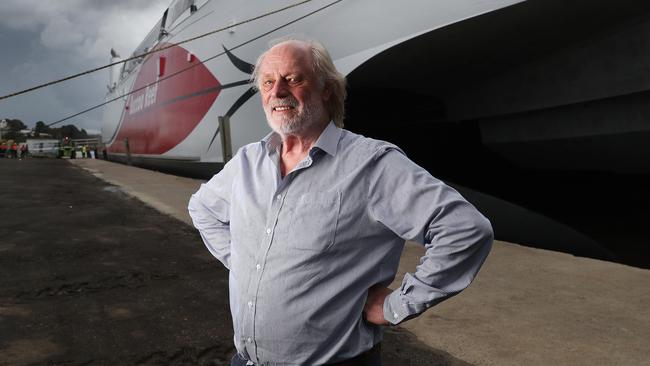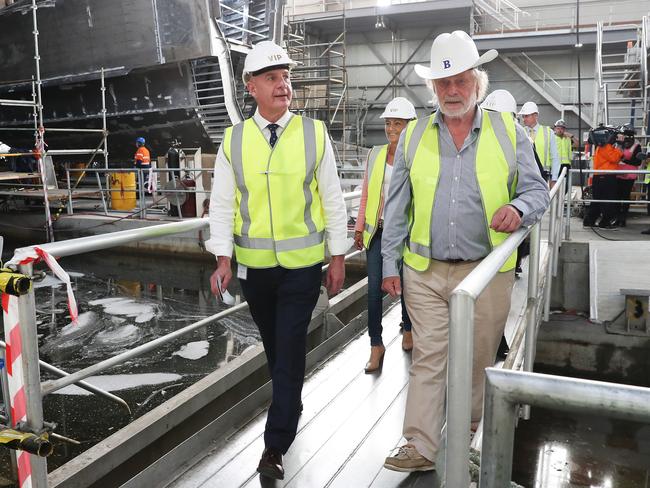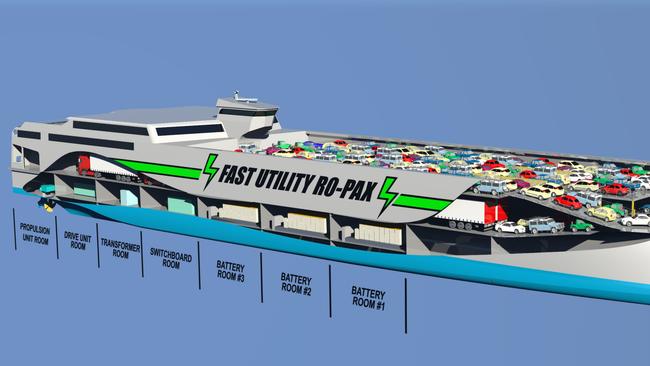Incat may have to expand operations to accommodate future demand for electric ships: Clifford
The chairman of a major Tasmanian shipbuilder says his company may need to expand its operations to accommodate the future demand for electric vessels. LATEST >>
Tasmania
Don't miss out on the headlines from Tasmania. Followed categories will be added to My News.
Incat will seek to capitalise on efforts to decarbonise the global shipping sector, preparing to shift to building battery-powered vessels.
The company’s chairman Robert Clifford says Incat may need to expand its operations beyond its shipyard at Derwent Park in order to accommodate demand for electric ships into the future.
The shipping sector contributes close to 3 per cent of global emissions. But a move away from diesel-powered ships is afoot – and Incat is poised to play a major role in the new electric revolution, according to Mr Clifford.

In a Talking Point in today’s Mercury, he says that Incat “must react and re-power our ships”.
“ (Incat’s) light ships, lighter than other builders’ products, require less power to propel at a given speed,” he writes. “Not only does Incat build light ships but we also employ very efficient hull shapes – the bottom line is less propulsive power is needed (and) this places Incat in a good space.”

“Battery efficiency is advancing rapidly and the vehicle and aircraft industry is taking advantage of the increasing efficiency. The marine industry is also paying a lot of attention to battery-powered ships. The Scandinavians are the leaders already with over 50 ships in service producing zero emissions.”
“Today Incat can build ships using tested technology. Electric powered ships suitable for 100 nautical mile transits. Tomorrow’s batteries are sure to allow much longer transit voyages.”
Mr Clifford says 40,000 ships across the world need to reduce their emissions, while 5000 roll-on, roll-off vessels, such as the Spirit of Tasmania ferries, will have to be replaced.
“A thousand or more ships are expected to be replaced by Incat or some other builder’s zero emission product,” he writes.

“The aim is to build as many ships as practical at our Prince of Wales Bay site in Hobart and when that site reaches capacity we may have no alternative but to expand on another site, hopefully in Tasmania.
“The challenge will be to get the cost of the new products under control. Make no mistake – electric-powered ships with their expensive batteries will not be cheap. But neither will the alternative fuel-burning ships be without high cost.”





